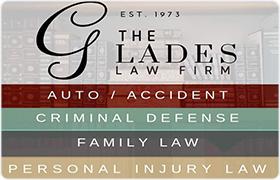Sarcoxie DUI-DWI Lawyer, Missouri
Sponsored Law Firm
-
 x
x

Click For More Info:
-
The Glades Law Firm, P.C.
1120 SE Murphy Blvd Joplin, MO 64801» view mapCriminal Defense Law Determined. Experienced. Passionate.
Serving Southwest Missouri since 1973. Our experienced legal staff is dedicated to helping you with personal injury, criminal defense, and family law matters.
800-965-6971
FREE CONSULTATION
CONTACTPatrick Michael Martucci
Child Custody, DUI-DWI, Personal Injury, Medical Malpractice, Accident & Injury
Status: In Good Standing
FREE CONSULTATION
CONTACT Phillip A. Glades Joplin, MO
Phillip A. Glades Joplin, MO Practice AreasExpertise
Practice AreasExpertise
